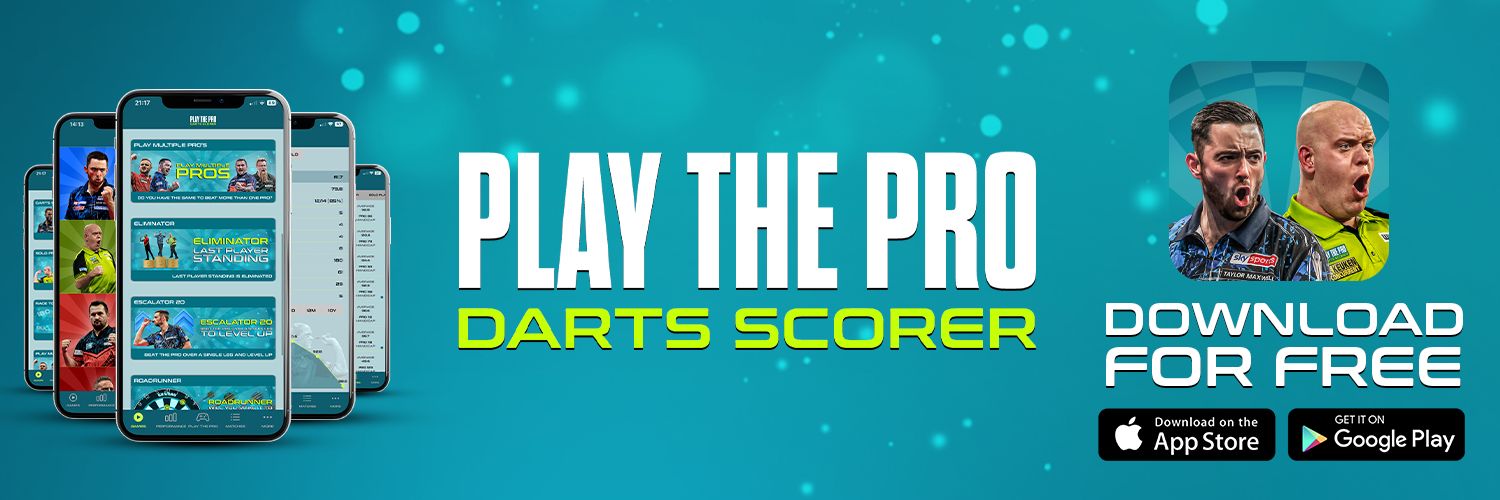Recently, former World Darts Champion, Bob Anderson wrote an open letter asking why darts remains adrift of other sports with its attitude to coaching. Bob is not only a former world darts champion but a multi sportsman with a wealth of experience and knowledge. Here is Bob’s letter in full:
” I have been involved in sport for most of my life, as an amateur, semi professional and full time professional. These sports include football, rugby, basketball, golf, cricket, tennis and of course darts.
Now what do all these sports, apart from darts!, have in common?
I will tell you, when a player shows promise, and indeed becomes professional, they all make use of coaches. Can you imagine Andy Murray, Rory McIlroy, Manchester United or the England Cricket team just muddling along without coaches advising them on aspects of their game, like the correct swing, best way to score a penalty or the best way to hit a backhand winner. Additionally there is psychology and players fitness to be considered.
So why then do dart players, especially the pro players, consider that its below them, or even demeaning, to employ a coach?
Your comments would be welcome………
Bob Anderson
24 March 2016 “
As a darts consultant, Bob’s question is one I have been interested in for quite a while. Since 2009 I have been involved with coaching, mentoring, managing and supporting dart players. Much of this time has been spent with those making their way in the professional game. Having looked closely I believe that the lack of serious, structured and measurable coaching, within darts, is the result of a number of factors, some of which are slowly changing. Current attitudes are however affecting the ability of many to reach, and gain the maximum from, their potential.

Coaching Culture
Or should it be the lack of. The other sports and games mentioned in Bob’s letter have coaching and mentoring built into them from very early on. There are supervised clubs, schools and other schemes to get young people playing the games. Those new to the game or showing promise have assistance and an improvement, performance and competition path ready and waiting. Whether its amateur coaches at local athletics clubs or the resident pro at the local golf course does not matter, as each level is reached more specialist coaching or assistance can come from local and national associations and other types of support may be available through sponsors or even the national lottery.
Eventually, as a player approaches or reaches the top, he/she is able to gain a personal and often exclusive coach to assist with the requirements of making the transition to professional sport and then, maintaining and improving the standards reached, to maximise their potential.
Until very recently none of this existed in darts. A player would perhaps start playing at home in the garage, possibly getting some casual assistance from a parent or family member who played. They may then have gained entry to the local pubs or clubs, again any assistance would be informal and many faults may have already been engrained. If the player showed promise he/she may be selected for the pub/club side. From this point on on coaching of any sort is almost completely replaced by matches and practise games. The player themselves had to work out weaknesses and try to correct them. From this level onward darts was purely about progression within a competitive system, this discouraged experimentation and or radical change. If a player then managed to move up another level or two he may have been spotted by a professional player. This sometimes lead to a mentoring or experience and even prize money sharing, arrangement. Then the older pro would perhaps dip a level and the newer player would be left to fly the flag. Phil Taylor and Eric Bristow are an example of this type of relationship. Bob himself encouraged Dennis Smith in this way.
It should be remembered that this was the only available option, due to darts working class roots, and perilous financial state, no other road or culture existed. This is now beginning to change. Youth academies now exist for darts, many have coaches, mentors and even professionals attached to them. The Steve Brown Academies and Colin Osborne’s in Nottingham are good examples.
There is a competition/ competence path, from the age of about 8 onwards, and methods of teaching and coaching are improving all the time. By the time players reach their teens they are able to play in the best conditions and in similar environments to professionals, alchohol is restricted and many opportunities are provided by organisations such as the JDC and then the PDC and the sponsors of open events.
Thus a structured system is beginning to grow from the grassroots up, the coaching, mentoring and competitive path is tremendously further developed than only 5 – 10 years ago. Yet still there is a lack of will amongst many in the higher levels to accept assistance.
Financial Factors.
Despite the huge increase in the rewards available, it is only very recently that darts can be said to provide a good income, on a full time professional basis, for more than twenty to thirty players. For a player looking to break through onto the professional scene, or looking to move to the elite level, there is often not a lot of spare money available. Mix this with the lack of coaching culture and many players consider it not worth, the money or extra risk, of paying out more money. This is made even more the case by the fact that the success of coaching can be difficult to measure. It can be hard to see or understand what coaches, psychologists or others actually do.
The ego of players, and their supporters, can come into play here as well. In tennis the player pays the coach, this is usually a fixed fee plus a %, for work done. An amount of time spent travelling with the player will also be agreed and the player will either pay these expenses or have them worked into the original contract. Thus quite a large sum of money will have to be paid regardless of results. If the results start heading in the right direction more money will have to be paid. Dart players in the current culture would not appear to be ready for this leap in culture. There is still the belief that players are all and support team members are insignificant.
The extra kicker here is that, in the above example, it is the coach who is in charge! Although most things will be done by agreement, it is the coach who identifies the issues, sets the practise, decides on other factors that may be needed and many other matters. This is even more so if the coach is the head of a support team.
We therefor have to imagine our current crop of top ranking players paying out fees and or %’s of their income in exchange for being told what to do, and when and how, by someone else. The look of horror on players faces when this arrangement is outlined is priceless. It does however give me a place to start.
The benefits of this to the player can be enormous, the relatively short relationship between Ivan Llendl and Andy Murray would have cost Andy a lot of money, over the 2 years or so they worked together, but Ivan’s work contributed to making Andy an Olympic, Major and then Wimbledon champion. Not only would Andy have earned huge amounts extra in prize money from these title but his future earning will have multiplied many times. Thus Ivan was worth whatever he was paid!
For those who doubt, such an example is relevant to darts, a look at the case of Adrian Lewis and Keith Deller is recommended.

Role Definition
In most fully developed sports the roles are very clear. In Tennis for example a junior player will have a club coach that teaches them the basics and supervises practise, as they develop, and maybe get onto a performance program, they may get more one on one or small group attention. As they undertake the tour this will reduce according to what they can afford or what their association offers. Should they make it too the top they will have developed full support team. There will be a coach or head coach, fitness coach, psychologist, physio therapist and hitting partners. In golf the there may be a coach, a swing coach, a sports psychologist and a fitness coach. In boxing there will be a main coach, assistants, sparing partners and possibly specific support for certain fights or opponents.
In addition to the above roles there will be Manager or Managment Company, Agent, Personal Assistant, Social Media & IT, Sponsors and other roles that are mainly commercial, image makig or advisory in nature. Although crossing over with the playing roles they are different and distinct.
Darts has yet to develop these roles fully and struggles with its own versions of them. For example in darts the role of manager is closely allied to an agent and/or promoter. Sponsors sometimes take money back from a player, not merely provide funds in exchange for time & publicity. Thus it can lead to many unqualified or inexperienced people playing a variety of roles on a players behalf. I myself have been Sponsor, Manager, Agent, Coach, Personal Assistant, Practise Partner, Psychologist, Analyst, Promoter as well as friend, confidante and relationship guidance councillor.
A good possible example here is snooker, similar in many ways to darts, booming in the 70’s, working class roots, mis-spent youth etc. etc. After snooker’s initial explosion the slow evolution of coaching and definition of roles came in to place. I seem to recall that Doug Mountjoy, and others, received cueing action advise from a Mr Leadbetter. Barry Hearn demonstrated and defined the role of manager. Later former world champion Terry Griffiths became a renowned coach to many players including Mark Williams. Even the great maverick Ronnie O Sullivan was wise enough to select Ray Reardon as a mentor.

A Class Issue?
Looking at the list of sports mentioned in Bob’s original letter I was reminded of a conversation I had had with a sports psychologist who assists several famous individuals and a national team to boot. Explaining to him what I did, with darts players, we discussed the differences between the attitudes of players in the different sports. He stated that the single biggest difference between all the sports that he was involved with was class.
Sports that would be thought of as middle class, Cricket, Golf etc, had no attitude problem to his work and were keen to try anything that might be of use to them. Sports he worked in that are thought of as working class such as football and snooker were entirely different, much longer had to be spent overcoming resistance and protests as to what use his area could possibly be. My colleague put this down, in the main part, to the fact that those from middle classes were used to dealing with professionals from areas other than their own, psychologists, therapists and others. Whereas many from working class backgrounds were taught to be wary or dismissive of such ‘suits’. Darts is predominantly still a working class game and its entire history is intertwined with working class habits and attitudes. This is no bad thing and gives darts many of its best features. In the area of coaching and support strategy however, the shut up and get on with it attitude is represented by the “you can’t coach darts” or “It’s all the player” cliches that are still regularly heard.
There have always been exceptions in terms of class or attitude, Bob himself was less conventional than many darters and more recently Paul Nicholson has shown the benefits a different approach to business, fitness & support systems.
Waking up, to the future?
The changing nature of darts, financially and structurally, will mean that roles become more defined over the next few years. The swiftly increasing financial rewards will encourage players to identify what they need to improve or maintain success and they will be able to afford it.
Well established professional management companies will implement the support strategies that are successful in golf, cricket and boxing. Services will be offered on a specialised and bespoke basis. Its not merely waking up but more a process of growing up as a sport.
There are a few signs that this is beginning to happen. Several players, and or their management/sponsor, have contacted myself and other players are using psychologists, hypno-therapists and other assistants were they can.

It is time for many of the old preconceptions to be buried. It will also be important for players to be honest and give credit where it is due. The PDPA need to revisit there coaching structure and put in place at least a basic accreditation system. Simple 3 Level Coaching Certification would be easy to offer :
Level 1: Aimed at those beginning to play in academies etc. A basic certificate showing that the coach was aware and able to teach the basic elements such as Grip, Stance, Release etc. A good understanding of equipment together with the relevent rules and regulations would form a good initial level.
Level 2: Aimed at those who have played for a while or reached a certain level. Elements should include basic analysis of a players game, knowledge of other factors which can affect performance and a grounding in the benefits of structured practise.
Level 3 (Professional Level): Aimed at players who are or aspire to be professional sportspeople. This level should include evidence of the ability to analyse players and matches. Build and supervise coaching modules and plans. High level understanding of the structures, rules and organisation of the professional game and a demonstrated understanding of the many factors both personal and external that can affect player performance. A knowledge of sports science in the context of darts would also be ideal.
This final level should be open to all those who demonstrate the commitment to undertake the certification. However the, skills and, experience needed to be accepted for the course should be set by the PDPA and contain exemptions, or a fast track, for former high achieving professional players. Thus valuable knowledge will be kept in the game and the coaching and support standard will multiply. It should however be remembered that many of the best coaches across the sporting world only played at modest levels.
There are many different types of coach and dart players could soon be in a position to select at will, but will the will be there?










Thanks for sharing. Just to clarify, I am not an endorsed coach, just an ex World Champion with a bit of skill and knowledge! BOB ANDERSON